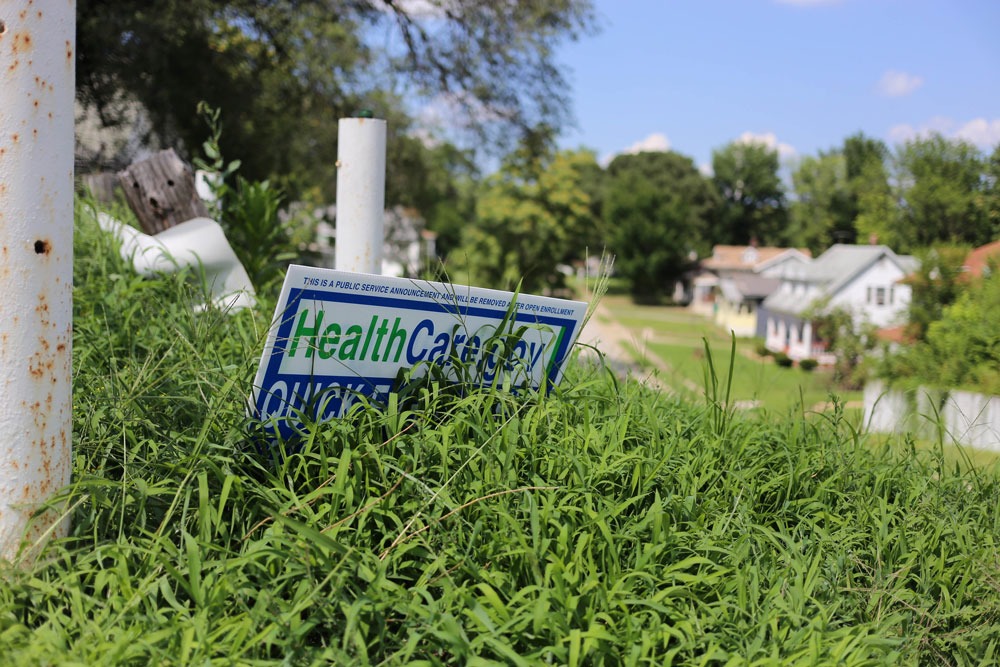
December 8, 2020; Truthout
We’ve seen the environmental harm the Trump administration is still trying to get done in the last days of their tenure. Now, we know they also seem hellbent on completing their war on the Affordable Care Act as well.
Quietly, right before American Thanksgiving, the Centers for Medicare & Medicaid Services (CMS) formally published its Notice of Benefit and Payment Parameters for 2022 which, allowing for the required 30 days for public comments to be received, let these changes take effect just days before the president leaves office.
The proposed new rules were described benignly as “a limited number of regulatory changes to provide states and issuers with a more stable and predictable regulatory framework that facilitates a more efficient and competitive market…lowering premiums, promoting program integrity, stabilizing markets, enhancing the consumer experience, and reducing regulatory burden.”
In reality, according to Truthout, the proposed rules “would encourage privatization of core functions of the health insurance marketplaces, starve HealthCare.gov of needed funds, codify administration efforts to waive important parts of the ACA, and continue a policy that raises premiums and cost-sharing.”
Core to the ACA’s approach to using private insurance as the basis for making coverage more available was the creation of an efficient mechanism for people to find a plan that meets their needs and understand the level of government subsidy that they will receive to help make coverage affordable. This was done by creating HealthCare.gov, a web portal run by CMS that states could use. (States also had the option to create their own state-specific portals.) The goal was to keep competition for customers from distorting and hiding information, letting buyers’ choices be based on plan details and costs.
The Trump administration is proposing that states could withdraw from HealthCare.gov while not providing a state-run neutral portal, turning the entire process over to private for-profit companies. This model was established by the waiver the state of Georgia received in November, and the Trump administration’s proposal would extend this approach.
One key aspect of the public portals has been their guarantee that they’ll provide apples-to-apples comparisons of all the options available to each person. The proposed approach puts for-profit entities in the key matchmaker role. As described by Truthout, companies who stand to benefit more from some choices than others “can withhold essential information (like premiums and deductibles) for plans that don’t pay them commissions, forcing consumers to do significant legwork if they want to explore those options.”
Sign up for our free newsletters
Subscribe to NPQ's newsletters to have our top stories delivered directly to your inbox.
By signing up, you agree to our privacy policy and terms of use, and to receive messages from NPQ and our partners.
Vulnerable populations who relied on the ACA to steer them to affordable and effective coverage may be harmed. The Center on Budget and Policy Priorities’ (CBPP) analysis of the impact of Georgia’s waiver found that this “scheme will reduce coverage among the 500,000 Georgians who now enroll through HealthCare.gov, without a broker.”
For starters, many people will likely fall through the cracks in this massive change due to confusion about the new process. That’s what happened in states that shifted from the federal marketplace to a state-based marketplace or vice versa, a transition much simpler for consumers than what Georgia is attempting…
By encouraging more states to follow Georgia’s lead, the NBPP would likely cause more loss of coverage and divert more people to subpar plans.
As Truthout says, “These entities sometimes steer people to short-term and other subpar plans and discourage Medicaid enrollment.”
The effectiveness of the current marketplace system seems to have been ignored in the rush to do as much harm to the ACA as possible before the president’s term ends. As Health Affairs observed, “It is perplexing that CMS would let states fully eliminate HealthCare.gov (or another consumer-facing enrollment website) as an enrollment pathway when most consumers are enrolled that way. Doing so elevates [private] entities…over a trusted source of coverage for millions of Americans.”
Federal funding for the CMS marketplace would be cut by 25 percent under the proposed rules. This will make it hard to provide needed technical support for the portal, diminish customer service, and reduce the availability of “assisters” who can help individuals navigate the process. This will make it harder to make wise choices and discourage visitors from sticking with the process long enough to get insurance. Like many other efforts to “starve the beast,” this looks like an attempt to make the government’s marketplace fail, making continued privatization seem more attractive.
Other parts of the new rules will make it easier for people to purchase substandard insurance. Not all plans offered in these private channels provide the full menu of coverage required for ACA’s standard plans. The changes open the door to the promotion of “short-term plans that lack the ACA’s protections for people with pre-existing conditions, as well as waivers that would reduce benefits or increase deductibles and cost-sharing.” Allowing them to be sold in the same place will add a false sense of value to plans that will leave those coverage at risk of facing large co-pays and deductibles higher than are permitted in ACA-qualifying plans.
Comments about the proposed rules can be offered until December 30, 2020, at regulations.gov. Given the potential for real harm at a time when access to affordable health care is so critical, it’s crucial to speak up and tell CMS that breaking the system in this way is unacceptable. Even though the Biden administration will be able to roll these changes back, doing so will take time and divert energy. And while that effort plays out, access to coverage may be lost.—Martin Levine













